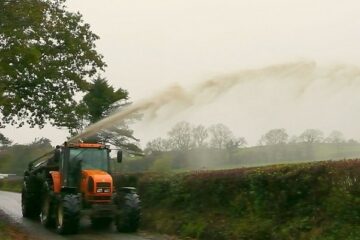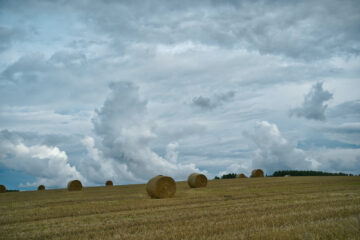With pollution leading to the death of over 1,000 wild brown trout in Claremorris last week, Inland Fisheries Ireland is warning farmers to be careful over the coming months not to contribute to water contamination. Last week’s unfortunate events are thought to be the result of an agricultural silage leak.
When harvesting silage and spreading slurry, farmers should take care not to contaminate nearby water sources. The entry of both silage and slurry into the water can result in a loss of nutrients, starving fish of oxygen. This is particularly true during the summer months, when water levels are sometimes low enough to prevent adequate dilution of these substances.
The following steps, laid out by Inland Fisheries Ireland, caution farmers on how best to avoid water pollution during the coming months:
- Use round bales as the most environmentally friendly way to store silage
- If a silage pit is being used, ensure it is properly sealed to prevent leakage from under the slab
- Carry out slurry spreading in dry weather and never when heavy rain is forecast
- Never spread slurry close to a watercourse, be aware of the slope of land to the watercourse
- Do not clean tanks beside any watercourse, stream or a river
- Do not allow any effluent or washings to enter any rainwater gully.
Inland Fisheries Ireland also offers a confidential hotline number so that the public can report concerns about water pollution. To contact the hotline, call 1890 34 74 24 or 1890 FISH 24.



